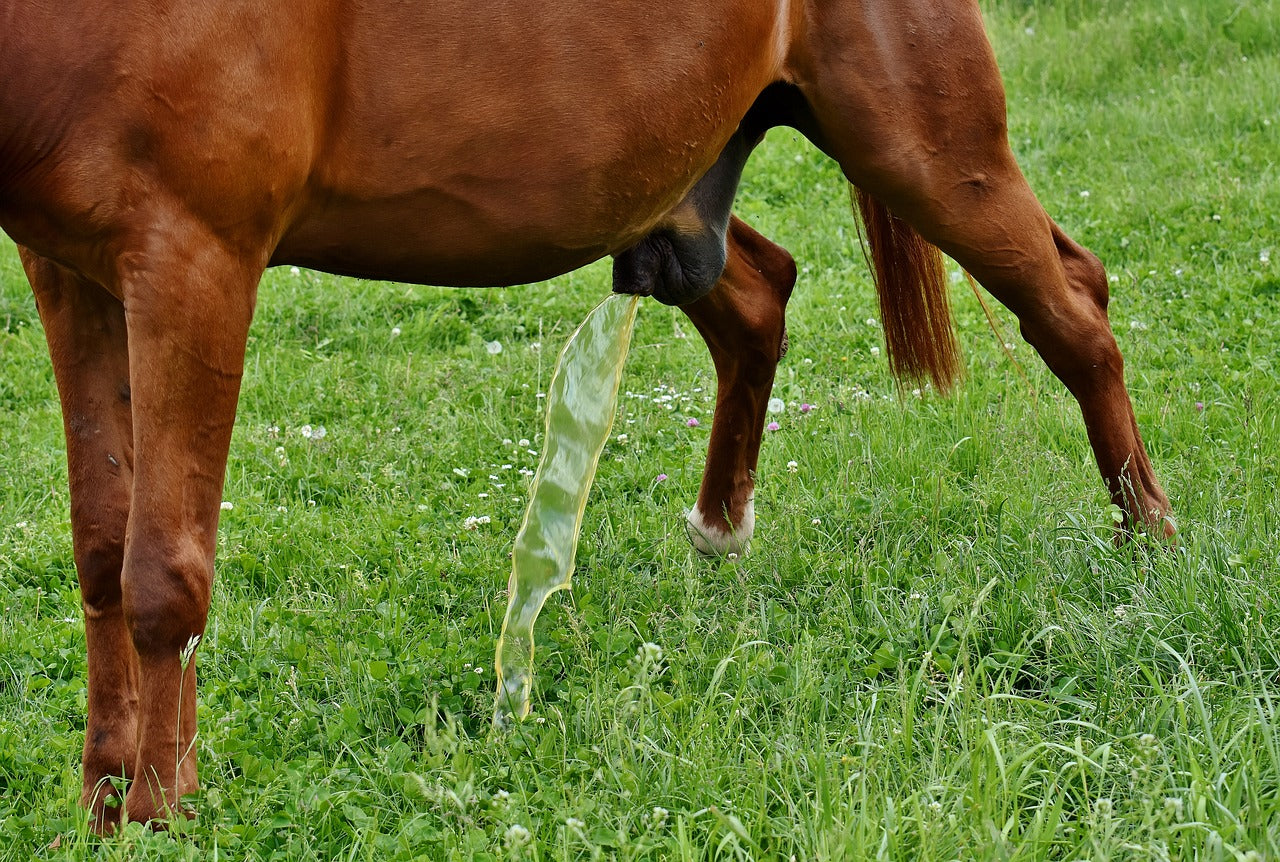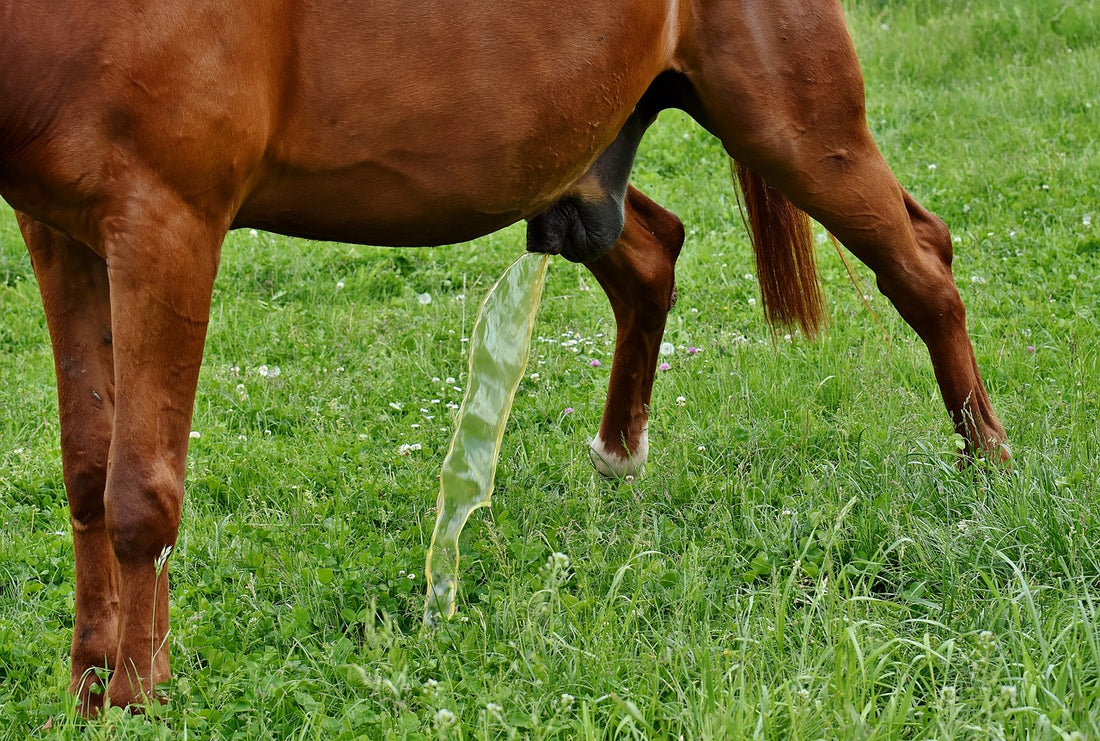You probably turn away or even walk away when you horse urinates but it could be useful to pay more attention! By monitoring your horse's urine, you could be able to spot potential health issues early and so give your horse the best possible chance to recover from them. In order to know if something is wrong you first need to establish what is normal for your horse. Urine does vary and the natural differences are caused by a variety of factors.
What is Normal Urine?
Your horse's urine will probably be pale in colour if they have unlimited access to water. If their water intake is restricted or they have sweated a lot in the heat, then their urine will become more concentrated and therefore a darker yellow. Don't be too disturbed if your horse's urine appears to be a little red in colour after it has been passed. The urine can be oxidised when exposed to the light and this can turn it orange/red in colour. This phenomenon should not be confused with bloody urine. Your horse may absorb excessive calcium and this will be eliminated in its urine giving it a cloudy or milky appearance. Its urine could also appear rather bubbly as it is passed. This is because the urine contains mucus to act as a lubricant which prevents calcium carbonate crystals turning into stones. The more protein that your horse consumes in his or her diet then the more urea and ammonium he will expel. Therefore the stronger the smell of ammonia will be in the stable.
What is Abnormal Urine?
If you are acquainted with what is normal for your horse, then it is easier to spot issues. You should monitor your horse's urine continuously so that you are able to recognises any changes quickly. Cystitis is a very common urinary track condition which is even more common in mares as they possess shorter urethras. This means that infections can access the bladder more easily. If your horse is suffering for cystitis, then their urine may contain blood. Kidney stones can form in the kidneys or the bladder. These are called calculi and can make urinating uncomfortable. If your horse appears to be urinating infrequently or is uncomfortable when doing so, this could mean that they have stones. These must be addressed immediately. Stones could cause a total blockage of the urinary tract and this can be fatal. Seek veterinary help if your horse's urine becomes very dark. This could be the result of rhabdomyolysis which is a change in the muscle cell membrane's permeability. This condition causes large quantities of protein to enter the blood stream and then to be excreted via the urine. Dark urine can also be a symptom of seasonal pasture myopathy. This is a devastating muscle disease most often found in grazing horses. It is thought to be caused by the toxins in the seeds of the sycamore tree and is fatal in the vast majority of cases.


